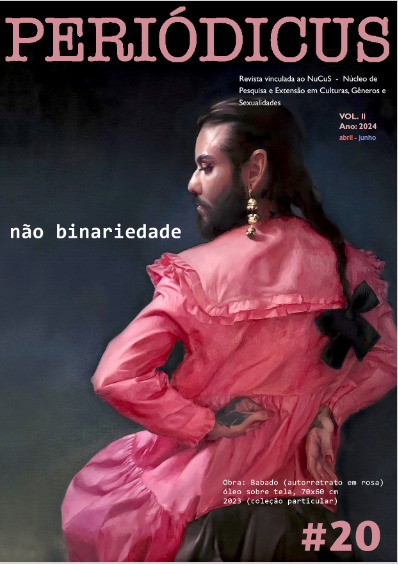“They were surprised that I didn’t have a boyfriend, a male boyfriend”:
the memories and narrative of a teacher from the interior of Paraíba
DOI:
https://doi.org/10.9771/peri.v2i20.54925Abstract
This text presents the teaching narrative of a teacher from the interior of Paraíba who declares herself a lesbian. The research aims to understand the paths taken by teacher Raquel, our interviewee, as well as to analyze how her singularities developed/affected the process of her teaching constitution, based on the assumption that being a teacher brings to light demands that the peculiarities of a heterosexual teacher. As a methodological path, we followed the paths proposed by Oral History, with a view to recovering and valuing female teaching memory. The study highlights how the school institution has historically and culturally constituted itself as a space where heteronormativity has a privileged place, relegating homosexuality to the margins. In this way, the school space has become one of the most difficult places for someone who is not heterosexual. Despite this scenario, it was still possible to perceive the ruptures created in the traffic of our participants, as well as the importance of having them participate in the public – and educational – space. Likewise, it highlights the urgency of teacher training that prepares teachers to deal with diversity, respecting all its richness and plurality.
Downloads
Downloads
Published
How to Cite
Issue
Section
License
Copyright (c) 2024 Joanderson de Oliveira Gomes, Fabricio de Lima Bezerra Silva

This work is licensed under a Creative Commons Attribution-NonCommercial 4.0 International License.
Authors who publish in this journal agree to the following terms:
Authors retain copyright and grant the journal the right of first publication, with the work simultaneously licensed under a Creative Commons Attribution Noncommercial License that allows the work to be shared with acknowledgment of authorship and initial publication in this journal, but prohibits commercial use.
Authors are authorized to enter into separate additional contracts for non-exclusive distribution of the version of the work published in this journal (e.g., publishing in an institutional repository or as a book chapter), with acknowledgment of authorship and initial publication in this journal.
Authors are permitted and encouraged to publish and distribute their work online (e.g., in institutional repositories or on their personal website) at any point before or during the editorial process, as this can generate productive changes and increase the impact and citation of the published work (see The Effect of Open Access).








